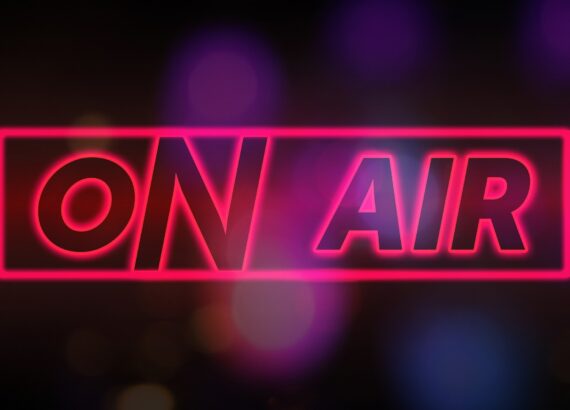What I’ve learned from being a journal editor
I’ve held an editorial role at the Journal of the Association of Environmental and Resource Economists (JAERE) for 3.5 years now (2.5 as co-editor and 1 as editor). I want to share a few things I’ve learned about the publishing process as a result of seeing another side of it, and I hope this information may be helpful for both authors and reviewers. Of course, what I’ve learned is going to be somewhat specific to me/the journal I was affiliated with, but I tried to limit the list below to what I think are more general patterns.
The editorial process is not a democracy where majority rules. Reviewer recommendations are not votes that get counted to determine the editor’s decision. Sure, there may be some editors that stick to that rule most of the time and the majority reviewer opinion is going to be highly correlated with the editor’s ultimate decision. I have never heard of a journal where the editor does not have discretion to overrule a reviewer’s recommendation, whether it’s positive or negative (I’m sure they exist, but I’m even surer that most econ journals don’t operate this way). So you may end up getting rejected even if two out of three reviewers recommend an R&R. The opposite also happens—an editor may see more potential in a paper than reviewers do and invite a revision despite the majority of reviewers recommending rejection. If you want to know more, I have a blog post that elaborates on this.
When reviewing, your reasoning matters much more than your recommendation. Your goal as a reviewer is to help the editor decide on whether to publish the paper, including what revisions to ask for if a revision is invited. Editors understand that you may not know what a journal’s standard is or the quality of other papers being submitted. So don’t sweat the recommendation too much, but do put effort into explaining the paper’s strengths and weaknesses. It is especially helpful if you state what weaknesses you think are addressable (e.g., changing the regression specification) and which ones are fundamental (e.g., the contribution). If you’re not sure whether a paper’s contribution is up to the journal’s par, it’s perfectly fine to say so in the cover letter (and be sure to explain your reasoning). You can find other suggestions for how to write a good referee report here and here.
There’s a good chance your reviewer will not be who you think it is. Your paper is so closely related to Jane Doe’s work that you’re 100% sure she’ll be a reviewer. But then the editor goes into the system and sees that Jane is already doing a review for the journal. Or that she turned down all requests in the past two years (or, even worse, never responded to several requests). Or that her average time to review a paper is 90 days. Or maybe Jane is an editor at another journal or a department chair or a dean, and there’s not even a point in asking her to review. So even if the editor agrees that Jane would be a great reviewer for your paper in principle, in practice she may never get asked. Or maybe the editor asks Jane Doe, and she turns down the request because she’s so busy, and John Doe (no relation) was asked instead. The moral is that the “obvious” reviewer may be much less available than you think, and you shouldn’t spend much time worrying about a specific person reviewing your paper. The exception is if you’ve already gotten a reviewer more than once at different journals. You may or may not be able to deduce who the reviewer might be, but you are much more likely to get that reviewer again if you’ve gotten them more than once. For thoughts on whether this is good or bad, see here.
People you cite in the introduction are more likely to be asked to review your paper. That is not to say all editors look there first. I’m sure there is variation among editors for how to choose reviewers, but here is mine for JAERE. First, I look to see if any members of the Editorial Council are appropriate and available. JAERE’s Editorial Council members are people with good reviewing records who are committed to do several reports for JAERE each year, so they are a natural go-to for a report (Note: not all journals/editors use their Editorial Councils/Board of Editors in this way). But, for this reason, EC members are often doing other reports or have recently completed one, in which case I don’t ask them. Second, I try to see if anyone comes to mind who works broadly in this area. Third, I look through the citations in the introduction. The ideal person to ask to review is someone who (1) has a related published paper (I try to avoid authors of closely related working papers because of potential conflicts of interest), (2) has publications in journals that are at least JAERE quality (otherwise, it may be hard for the reviewer to scrutinize the paper at a level necessary for JAERE), and (3) is an assistant or associate professor (I try to avoid asking full professors because so many of them are very busy).
So it’s worth thinking about who you cite in the introduction and how. That said, do NOT omit citations from your introduction on purpose because you want to avoid a specific reviewer. This can backfire. Many editors know many people in many fields, and there’s a good chance an editor will know who to ask without looking at your citations. Don’t risk looking like you aren’t aware of relevant papers in the literature or worse, like you’re avoiding citing related work to appear more novel than you really are. Obviously, you also want the citation to fit the narrative and not look like it was stuck in there for the purpose of getting a specific reviewer.
I have heard some people say that editors look to the list of people thanked to either select reviewers or to look for reviewers to avoid, but I don’t do this, and I’m guessing it’s not widespread. Thanking people in the acknowledgements is not a strong signal of anything in my opinion—maybe you talked to them about your paper for 5 minutes, maybe they read a draft, or maybe they just saw it at a seminar. They may be more likely to say yes to a request to review the paper because they are familiar with it, but they may also be biased reviewers because they know you personally. It’s therefore not clear what to make of this list, and I generally ignore it. I also ignore authors’ reviewer suggestions, as one should be able to identify reviewers from citations (in the worst-case scenario) and the authors’ own list might consist of people who will not be objective. Note that very few authors submit such lists, and I would not recommend putting one together unless the journal explicitly states that this is allowed or encouraged.
I’ll end this post with links to more relevant posts I’ve written in the past. Here’s how to pick which journal to submit your paper to. Here are some suggestions for what to do after a rejection. And here are some thoughts on when to give up on a paper. Finally, I’d like to plug my Thriving in Economics series, a collection of crowdsourced advice for PhD students and Assistant Professors, offering a wide range of perspectives on publishing, the job market, time management, and more.
Happy publishing!




Comments are closed.